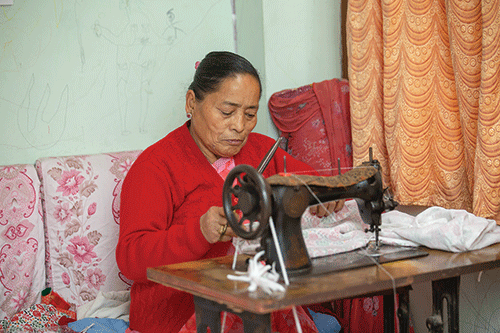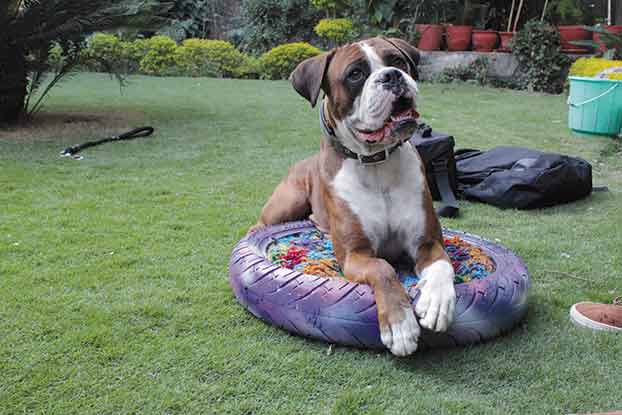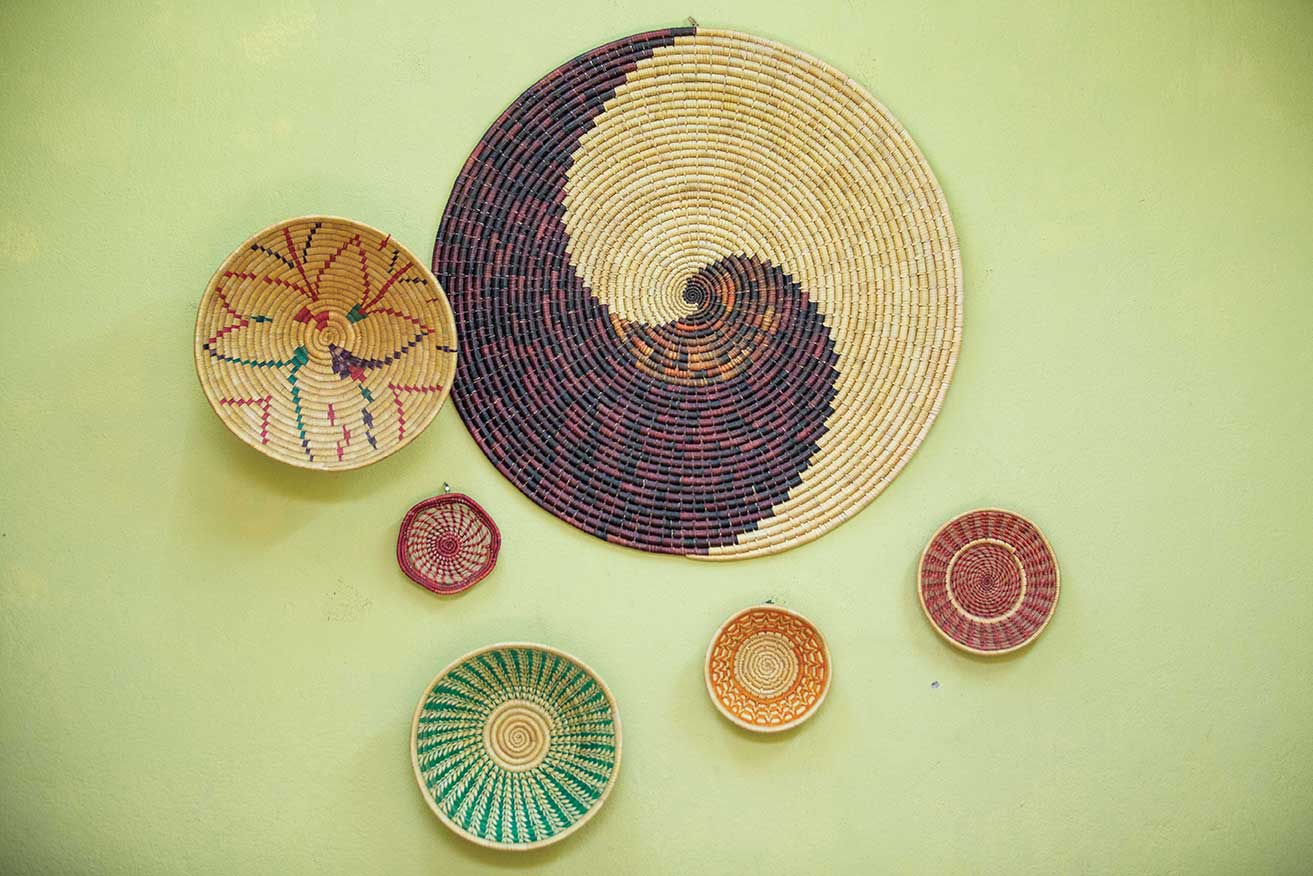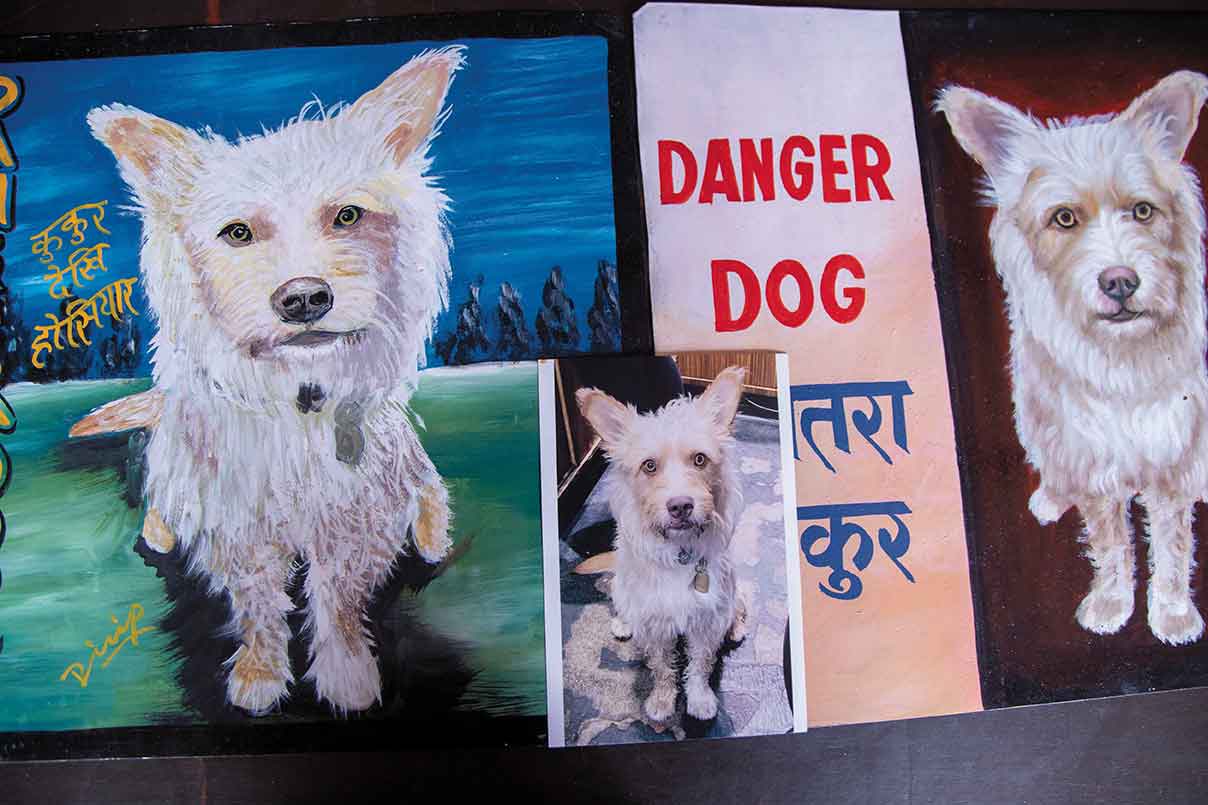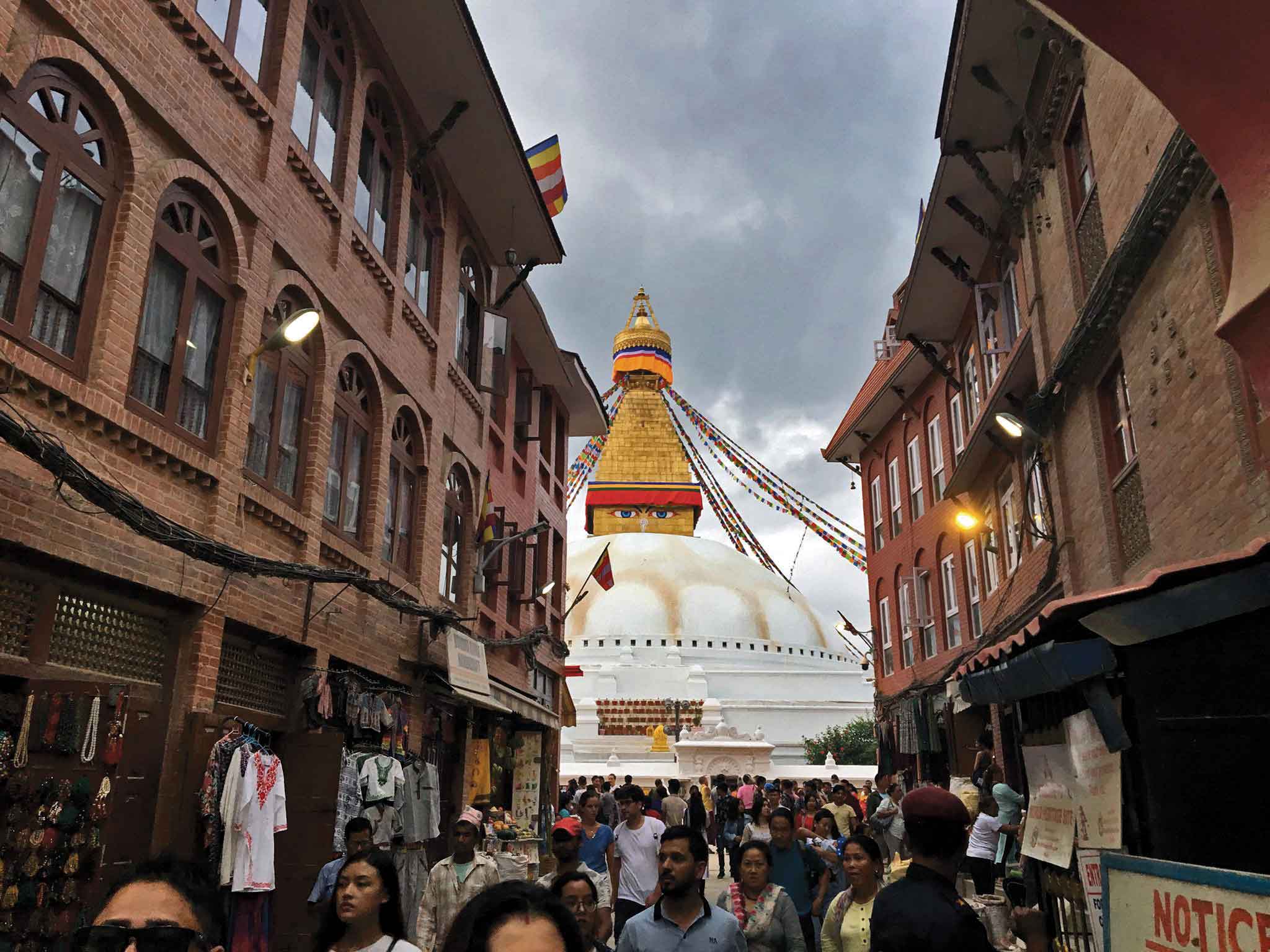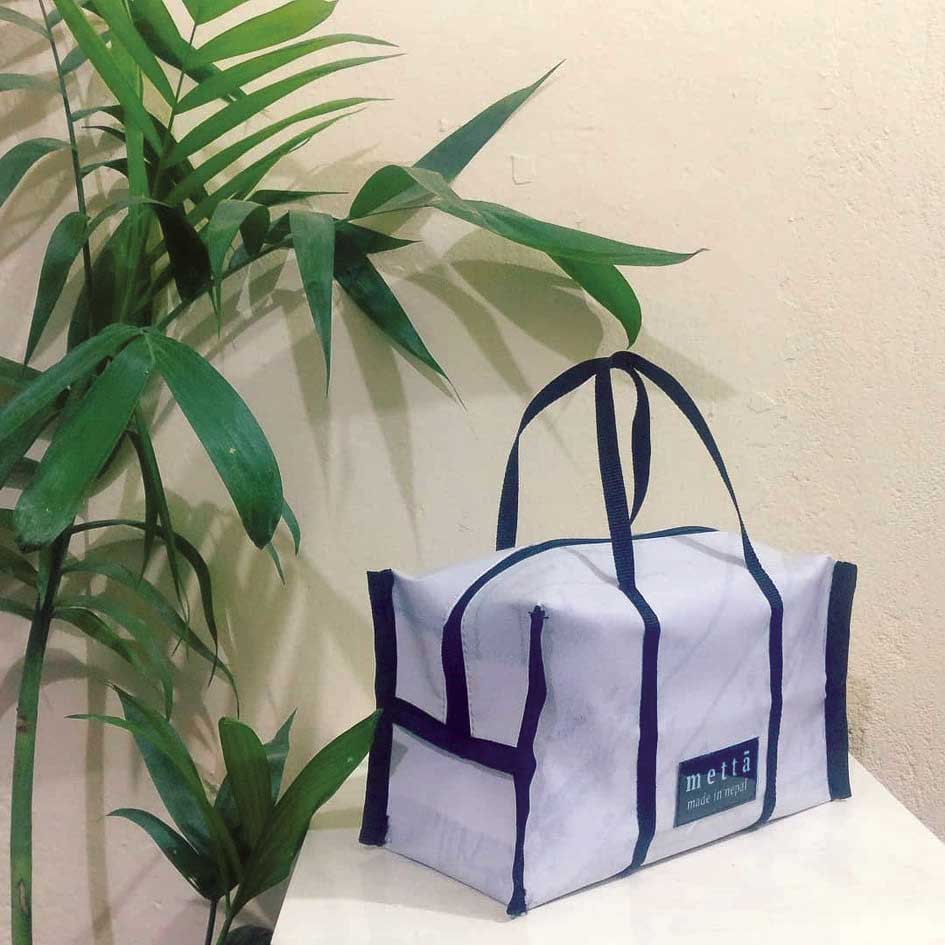
Banners. We see them everywhere in Kathmandu. It’s pretty much a habit for organisers to print flex banners for their upcoming events. But what if there was a way to extend the life of banners beyond just the event they advertise? It was this very question which led Rushka Sthapit to conceive of the idea ‘banners to bags’ in 2012, which as of this year is formally registered as a company under the name ‘Metta ktm.’
Rushka and a team of two crafters collect banners from across the city. Then they begin the lengthy process of cleaning them, sorting them and sewing them. The results are beautiful, environmentally friendly products that are completely one of a kind. As no two banners are the same, each bag is unique, a real selling point for the company. Rushka proudly claims that while the bags “have their own personality, they are uniform in terms of quality and size.”
Producing around 80 bags on average each month, Metta ktm is a small company competing against the mass-produced bag industry. Expanding to sell document and key holders too, they have branched out slightly and hope to produce camping chairs from upcycled raw materials in the future too. A retail store in Kathmandu is also in the works, but for now customers can buy Rushka’s products by messaging her official social media accounts, or by dropping an email.
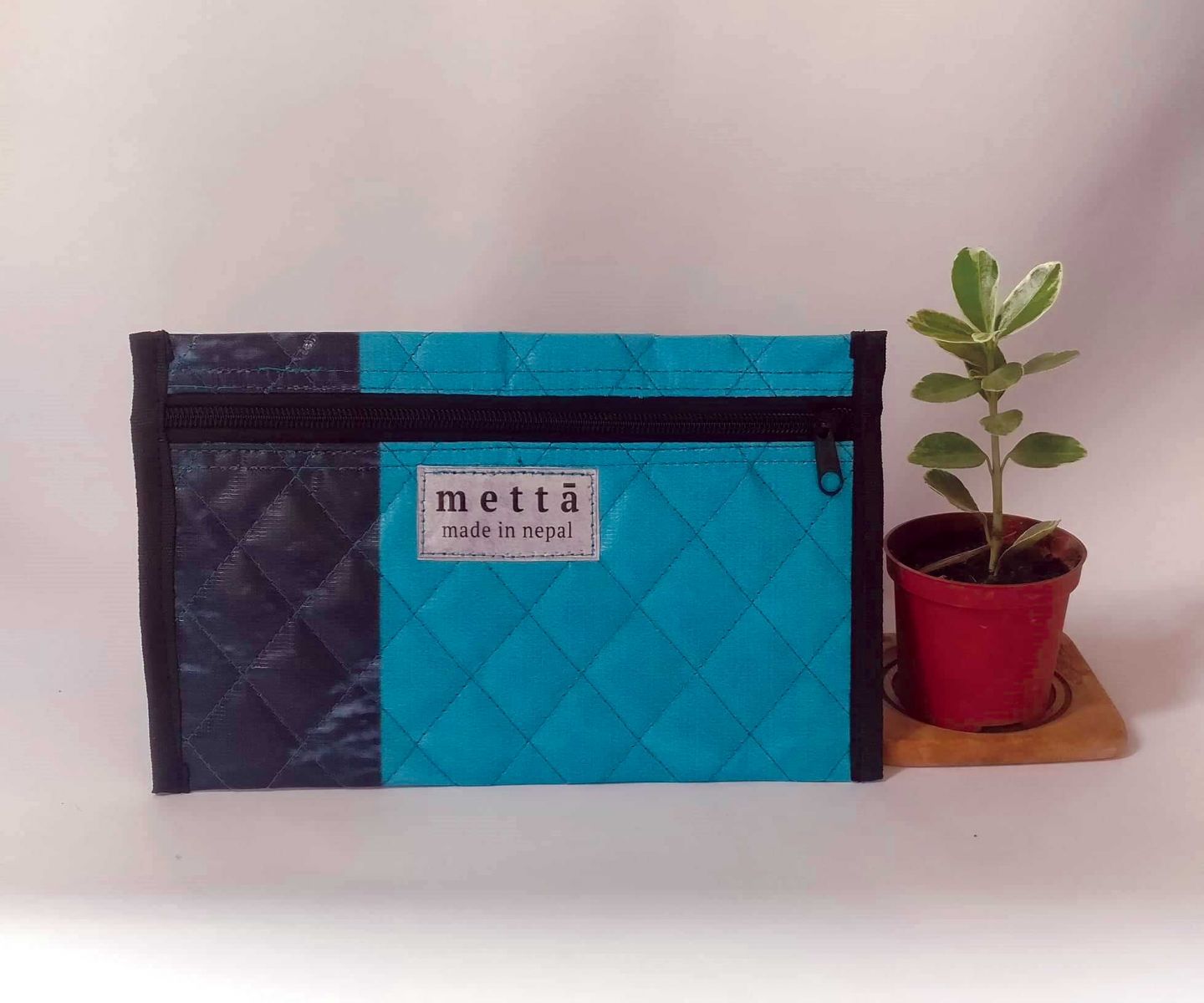
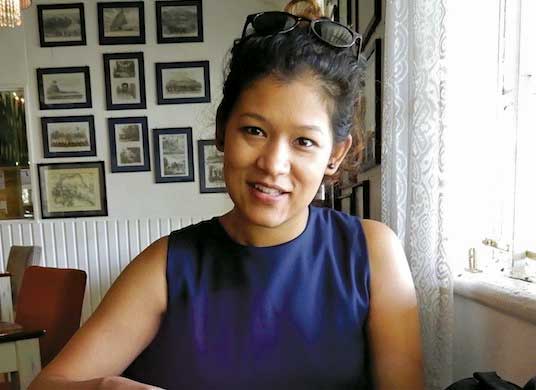
When asked what the future holds for Metta ktm, Rushka spoke excitedly about turning the company into a medium for environmental advocacy. With a growing culture of upcycling and recycling in Kathmandu, it’s a really exciting time for companies built around the ethos of environmental sustainability. To try and get the environmental message out, Rushka and her colleagues have attended events like Ambission College’s 2019 Waste Expo, where they displayed some of their products and got the chance to engage in important debates with students ranging from grade 3 to college. Many were very curious about their work, asking really important and legitimate questions about waste management. Others asked cheekily if they could have the products for free as they were made from waste, a way of thinking which pertains in some adults too. Rushka said after this event, “Children hold the future in their little hands. What you give them today will become their tomorrow,” a message we can all appreciate.
Like other companies working with waste materials, Metta ktm has faced some backlash from those who can’t seem to understand why upcycled products cost what they do. Priced at the lower end of the bag industry so her products are affordable for the average Nepali, Rushka is constantly having to explain that flex banners are actually a time-consuming and hard material to work with. “Firstly, you have to factor in the effort of talking to organisations, attending events and collecting banners. Then they all come in dirty, so you must clean and sanitise them. The effort which goes into using upcycled material like banners is much greater than simply buying fabric from a market,” says Rushka.
Beautiful, unique and environmentally friendly, her products are truly something special. As Rushka’s ‘baby,’ it’s clear to see the thought and energy behind every single item she designs. Collaborating with Tyre Treasures to include upcycled flex in their ‘Tommy’s Turf’ dog basket, Rushka has also proved her ability to adapt upcycled flex into a range of interesting products.
Her sustainable ethos runs beyond just the products she makes though, and is engrained in her business model, too. This is evident by the fact that the two women she currently employs were given official sewing training by CWIN-Nepal, an ethical organisation which works primarily with youth in need. Working as an Environmental Officer under the Women and Children Empowerment Project, it was here that Rushka initially conceived of the idea of making banners into bags. It took some time at first to teach the women how to sew and specifically how to work with flex, but over time they learnt how to deal with the material, discovering certain tricks which do and don’t work with recycled materials.
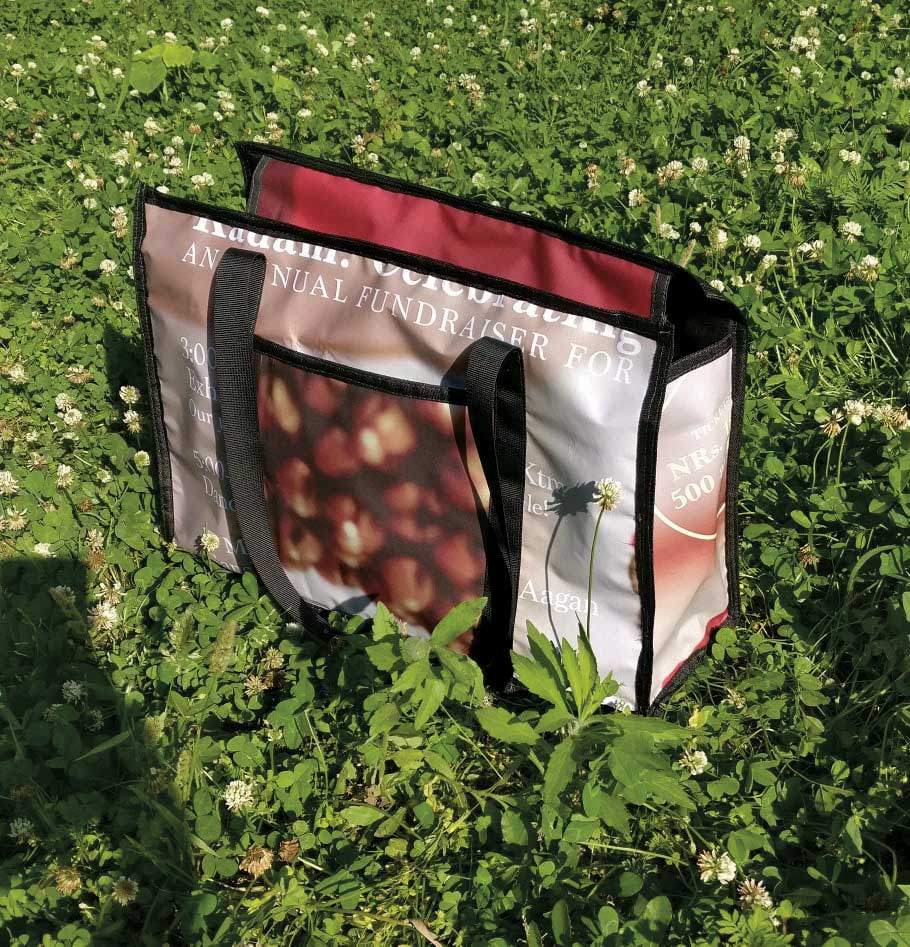
You only have to look at Metta ktm’s products to see that all their hard work was worth it. The bags are strong, sturdy and fashionable, as well as environmentally friendly of course. Informed by her degree in environmental engineering, Rushka’s company Metta ktm offers a genuine alternative to Kathmandu’s waste banner problem. One can only hope that more companies like hers begin to emerge in the future and that with time, consumers learn to accept their environmental responsibility and shop only with ethical brands like this.
For more information and to buy Metta ktm’s products, follow their Instagram @metta.ktm, or their Facebook, Metta ktm. Alternatively, contact Rushka directly by email at metta.ktm@gmail.com. If you would like to donate any used banners, please do get in contact. Metta ktm are always looking for flex banners they can upcycle.



